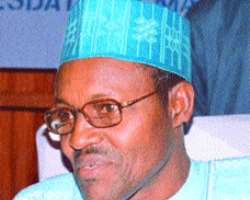BUHARI OGONI: Fast Track Orders Exposed

The Ogoni people on Thursday, August 13, 2015 began the Ogoni Springtime – an unlimited season of resentment to end injustice against the Ogoni people in Nigeria.
President Muhammadu Buhari had on Wednesday, August 5, 2015 approved several actions to fast-track the long delayed implementation of the United Nations Environmental Programme Report on the environmental restoration of Ogoniland.
He had said the actions approved were based on recommendations to him by the Executive Director of UNEP, the UNEP Special Representative for Ogoniland, permanent secretaries of the Federal Ministries of Environment and Petroleum Resources, and others, include the amendment of the official gazette establishing the Hydrocarbon.
Now, President of Ogoni Central Indigenous Authority, OCIA, Dr. Goodluck Diigbo wants the Buhari administration to show proof by publishing the recommendations and names of the signatories.
Diigbo said “it is dangerous to mask domestic abuse of powers, with emblems of foreign governments, authorities and institutions.”
“I have found out that there were no new recommendations, other than the Ogoni UNEP Report. I challenge President Buhari to publish the new recommendations so that we can see the content and names of the signatories, said Diigbo.
He said this in a statement to mark the “Ogoni Springtime launching, which would involve a series of actions to end the threat against extinction of the Ogoni people in southern Nigeria.
He further revealed: “I sourced for information below and above the UNEP Executive Director. My sources said they were not aware of the involvement of the UNEP Executive Director in a behind the scene recommendations, meant to truncate the official UNEP Mission Report.”
Continuing he said: “Already some form of admission [confession] has been made by certain individuals as off-record for “certain journalists” in Port Harcourt. They claimed that they lobbied the Buhari regime and even drafted the press release that turned into Fast-track actions for the implementation of the Ogoni UNEP Report. According to them, the idea was to counter a suspicion that Governor Nyesom Wike of Rivers State was planning a unilateral implementation to “outsmart Buhari” through integration of some aspects of the UNEP Report into Rivers State administration reconstruction agenda.”
On Sunday, August 9, 2015, he had addressed OCIA Emergency General Leadership Session at Birabi Memorial Grammar School, BMGS. “I made it clear that I had no such understanding with Wike. However, I said, if he had contemplated doing so, it would not have discarded the UNEP report, or shifted responsibility from polluters,” he said.
The Ogoni Springtime has been planned to enforce the Ogoni demand for a joint stakeholders’ review of the Ogoniland UNEP Report, as precondition for its implementation.
In an interview, he referenced a report by Channels Television, updated August 11, 2015, in which “Shell emphasized that in line with the UNEP position, treating the problem of environmental pollution in Ogoni land merely as a technical clean-up exercise is what would result in failure.”
Diigbo said the acknowledgment by Shell of potential implementation failure, meant joint review was unavoidable to ensure comprehensive treatment of UNEP recommendations on Ogoni land, which, he pointed out, President Buhari’s unilateral re-writing of the Report, jeopardizes.
He said, Shell understood the issues, which President Buhari may yet to find out. So, Shell reacted to a well-informed position taken by Amnesty International, saying “the President’s initiative would fail and the Ogoni people would continue to suffer, as long as Shell fails to change its method of oil spill clean-up.”
“In a sense, Amnesty International, like others, can easily see through the manipulative tactics; the exploitation of ignorance that undermines justice to achieve ethnic, partisan, and corporate gains,” Diigbo said.
He remarked that, “even though Shell, seems bent upon playing on words; alongside other stakeholders, Shell would want to subscribe to “clarity rules” as an underlying due process requirements, to avoid potential insecurity, conflicts and bloodshed, in course of implementation.”
“Ogoni has sacrificed so much for Nigeria. The continual injustice, dirty ethnic and partisan politics on Ogoni affairs will set the sun on Nigeria,” Diigbo
Signed by: Hon Dum Ade John Budam
For Dr. Goodluck Diigbo President, Ogoni Central Indigenous Authority
OGONI SPRINGTIME BEGINS IN NIGERIA
The Ogoni Springtime, an indefinite season of resentment and protests to end injustice against the Ogoni people in southern Nigeria. It began today, August 13, 2015 in Bori, the cultural and political capital of the Ogoni people. The resentment and protests will spread throughout the Ogoni Nation, involving civil disobedience and waves of popular actions to occupy and reclaim control over Ogoniland.
The Ogoni Springtime has been provoked by the dirty ethnic and partisan handling of the UNEP Ogoni Report by President Buhari administration. Today’s nonviolent march was led by eight provincial governors, leaders of Ogoni National Legislative Assembly, officers of the Ogoni Customary Court System, and elected leaders of district and village councils. Participants joined from the provinces of Bori, Babbe, Ban Ogoni, Eleme, Gokana, Ken Khana, Nyokhana, and Tai. The Ogoni organized system at all levels will be free to embark on protests from time to time with focus on ending injustice against the people.
In a statement to put Nigeria on Notice, President of the Ogoni Central Indigenous Authority, OCIA, Dr. Goodluck Diigbo has called on President Buhari to reverse his recent unilateral orders meant to override the Ogoniland Environmental Assessment Study that was issued by the United Nations Environmental Programme on August 11, 2011. In order to prevent an aggravation of the situation, he called for immediate dialogue. However, Diigbo said all protests will remain nonviolent, unless the Ogoni people are compelled to act in self-defence within the framework of international law.
